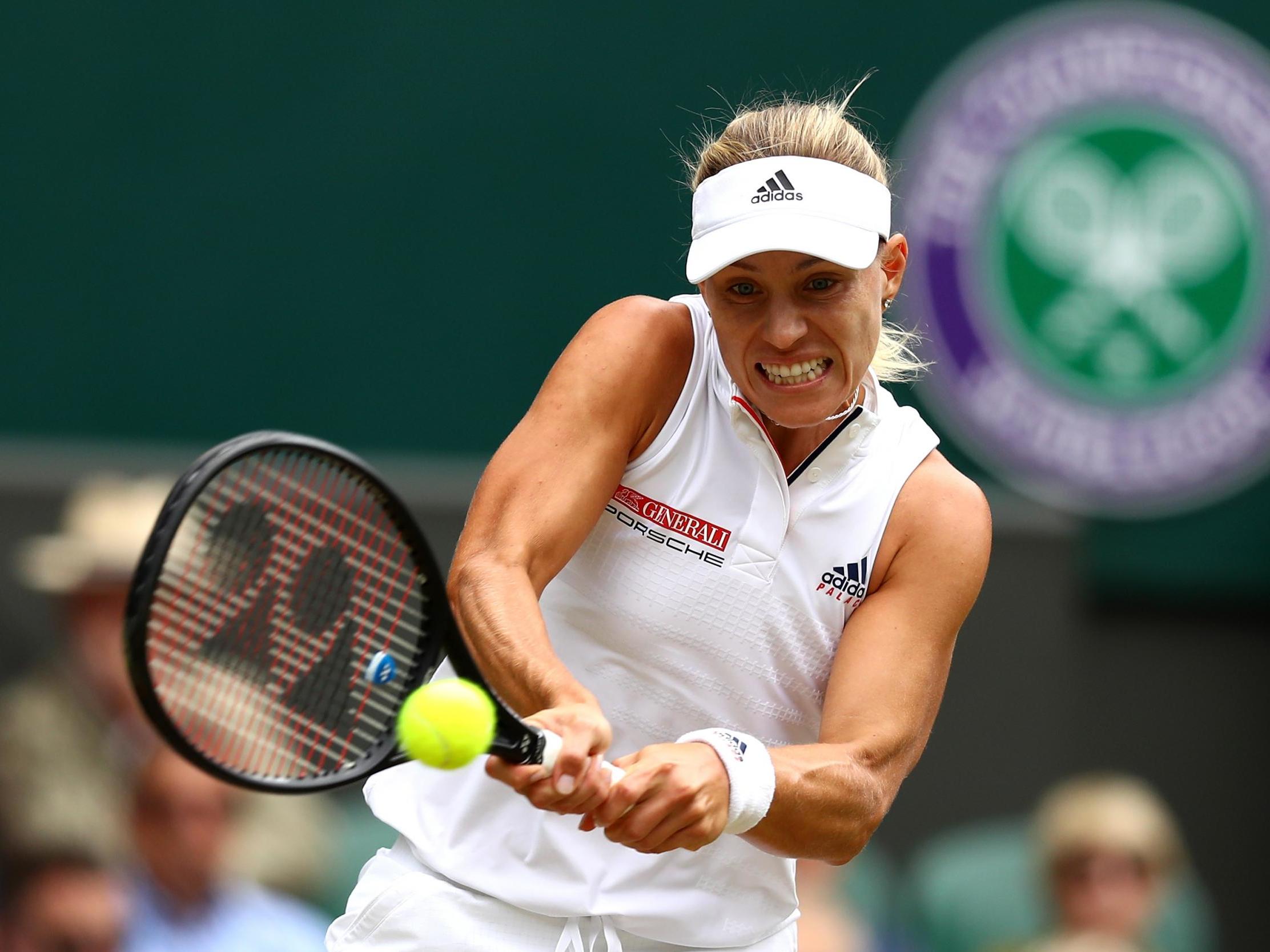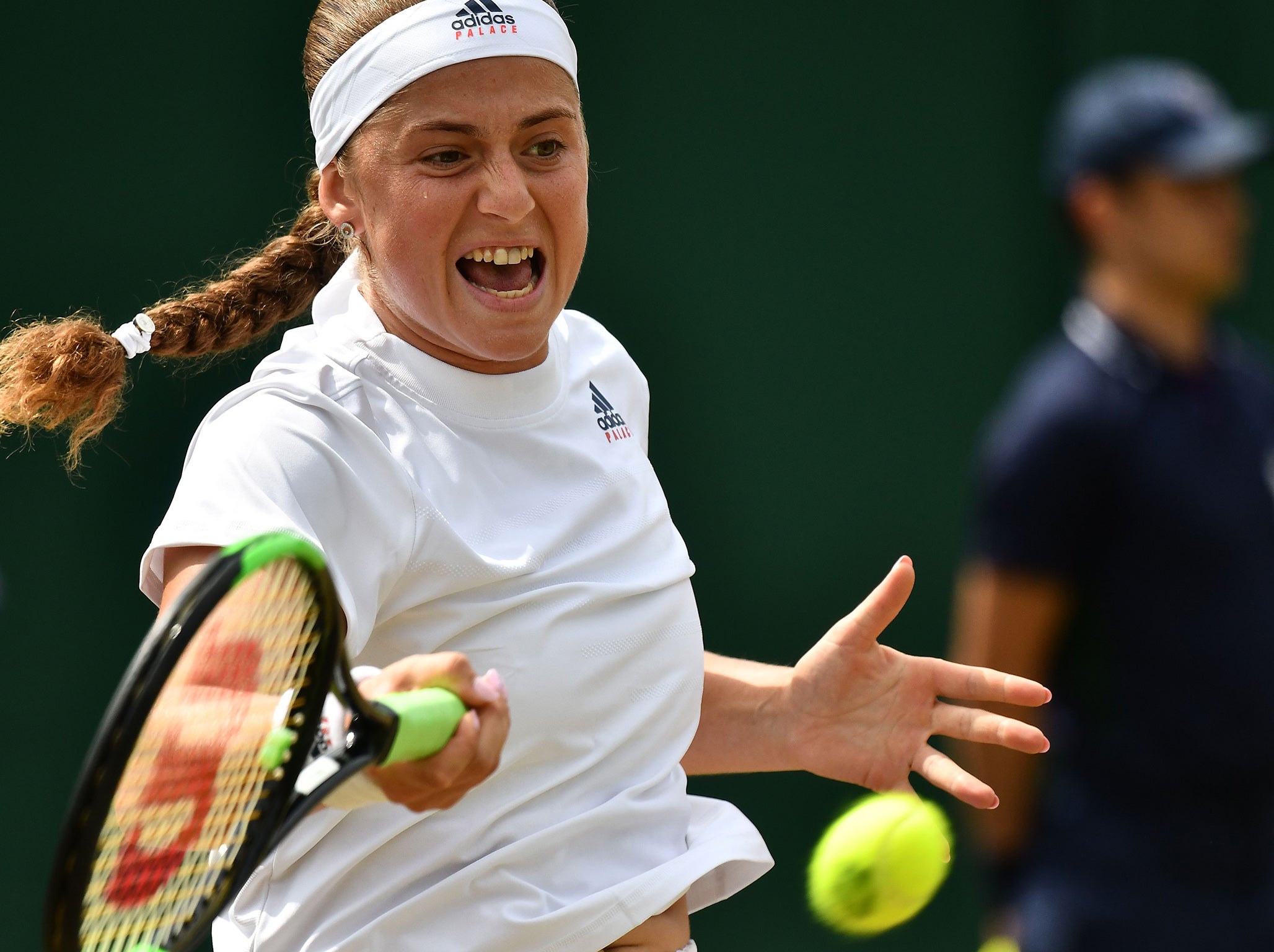Wimbledon 2018: Angelique Kerber leading the charge for new era of German tennis dominance
The women’s semi-finals here on Thursday will feature two Germans for the first time since 1993

Your support helps us to tell the story
From reproductive rights to climate change to Big Tech, The Independent is on the ground when the story is developing. Whether it's investigating the financials of Elon Musk's pro-Trump PAC or producing our latest documentary, 'The A Word', which shines a light on the American women fighting for reproductive rights, we know how important it is to parse out the facts from the messaging.
At such a critical moment in US history, we need reporters on the ground. Your donation allows us to keep sending journalists to speak to both sides of the story.
The Independent is trusted by Americans across the entire political spectrum. And unlike many other quality news outlets, we choose not to lock Americans out of our reporting and analysis with paywalls. We believe quality journalism should be available to everyone, paid for by those who can afford it.
Your support makes all the difference.We have a long way to go to get back to the time when Germany was a powerhouse of European tennis, but Angelique Kerber and Julia Goerges are doing their best to bring back the excitement of the days when Steffi Graf, Boris Becker and Michael Stich ruled the world.
The women’s semi-finals here on Thursday will feature two Germans for the first time at a Grand Slam tournament since Graf beat Anke Huber to reach the final of the French Open in 1993. Goerges faces Serena Williams, while Kerber will take on Jelena Ostapenko.
“I think it's great for German tennis,” Goerges said. “I think Angie did a much better job than I did the last years because she was in almost every semi-final.
“To really share this feeling with her, with a nation, I think that's something which is pretty special. It sounds crazy to maybe have the chance to share a German final at Wimbledon. It's still one more match to go for both of us. We both have very tough matches, but it's great to see there is a chance.”
Goerges has lost all three of her previous matches against Williams, the most recent of which was at the French Open last month, but the world No 13 is playing with renewed confidence these days.
Having reached the world’s top 20 in 2011, Goerges had a barren spell before surging back up the world rankings last year. She broke into the top 10 for the first time two months ago at the comparatively late age of 29.
“It was almost three years ago when I decided to make a change in my team,” Goerges said. “I went a completely new way. I took a new physio, a new coach. I changed my residence. I moved from the north to the south of Germany to start everything again from zero.
“I thought there was much more potential in my game and in myself to reach the goals I want to achieve, to become the best player I can be with the abilities I have.
“I think this work we are putting in every day, you can't expect it to happen in only three months. It needs a lot of time and a lot of work. I think the season I'm playing now has made it all worth it. I'm able to play in a semi-final against Serena Williams. That's something a player dreams of.”
She added: “I always believed in what I can do on the court, but sometimes you need to hear a different voice.”

Goerges said she had changed her approach to playing on grass last year when she added David Prinosil, a former top 30 player, to her team.
“He explained a few things to me, how I can be dangerous on a grass court, how I have to accept certain balls, certain circumstances on that surface, which I didn't do the years before, how you want to structure your points,” she said.
“There will be some rallies where you cannot do something, but you still need to accept that these things are going to happen, maybe in some important moments as well. You just have to get through them.”
After arriving here having never gone beyond the fourth round in her previous 41 Grand Slam tournaments, Goerges has produced a series of battling displays to reach the semi-finals. She now faces an opponent who needs only one more Grand Slam singles title to match Margaret Court’s all-time record of 24.

Williams is playing in only her fourth comeback tournament after taking a 14-month break to have her first child, but the 36-year-old American has been going from strength to strength here. She served particularly well in her quarter-final against Camila Giorgi, though she had to come from behind after losing the first set.
Goerges said it felt “pretty unreal” to be facing Williams in the semi-finals.“It's a great opportunity for me to meet her at that stage, an honour to share the court with her,” she said.
“It's obviously always been a dream for every player to be in the semis at Wimbledon. It’s much sweeter to get the semi-finals here than at probably the other Grand Slams because I didn't expect it.”
Like Goerges, Kerber has bounced back after a difficult period in her career.After her superb season in 2016, when she won the Australian and French Opens, was runner-up here and became world No 1, Kerber had a relatively poor 2017 but has performed consistently well throughout 2018.
The world No 10 has always had a reputation as one of the game’s best athletes and a player who keeps making her opponents hit the extra ball, but believes she has added more aggression to her game.

“I learned a lot from the last two years, especially on the mental side,” Kerber said. “I have really been focusing on my way, on my practices, but also on the way I'm taking the matches in my own hand.
“I think a lot of matches where I lost I was just pushing the balls. I wasn’t able to be aggressive. I think it's a process.I learned from a lot of matches, from wins but also from losses. I think I can reach the next level by being more aggressive.”
She added: “I like playing on grass. I'm always really low in my legs, which I think is good for my game. I think also all the experience that I’ve had, the memories, big matches that I played here, also on grass, I think that all gives me the feeling that I really love to play on the surface.”
Having just beaten one highly promising 21-year-old in Russia’s Daria Kasatkina, Kerber now faces another in Latvia’s Ostapenko, last year’s French Open champion, who has already gone one round better here than she did last year.
Ostapenko and Kerber have never played each other. “It’s a big challenge,” Kerber said. “She has won a Grand Slam. I think it will be a really good match. I think the match starts from zero. The pressure is not always on my side because she has also won a Grand Slam.”
Kerber said the defeats of so many leading players in the early rounds here had not affected her. “I think there are no favourites any more,” she said. “We are in the semis right now. I'm not looking at the other players. I'm really taking care of my own game, my matches and how I play on court. That is all I actually care about.”
Join our commenting forum
Join thought-provoking conversations, follow other Independent readers and see their replies
Comments